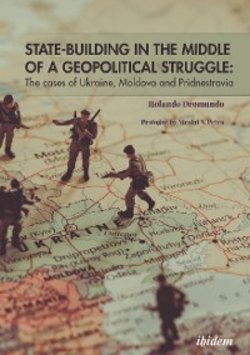Описание книги
Rolando Dromundo presents a political and historical analysis of the state-building processes in Ukraine, Moldova, and the unrecognized Republic of Pridnestrovia from the Soviet fall until 2015, starting with a sketch of the main geopolitical trend that surrounds these polities and its influences on them, and paying special attention to the vicissitudes of the Ukrainian political crisis of 2013–14 and its immediate consequences in Crimea and the Donbass.
This book is a must for scholars with an interest in the Post-Soviet Space and to anyone curious about an international conflict from a realist perspective. It offers an original insight on the understanding of the oligarch’s role in the Ukrainian political life and presents a different perspective of the unrecognized Republic of Pridnestrovia.
Dromundo writes neither pro-Russian nor pro-Western. He sheds light on the problems from different angles and illustrates how the local inhabitants turned out to become the biggest losers in the game because they have fallen prey to local elites allied with different foreign powers disregarding local identities and needs.
Altogether, the book helps to better understand the complexity of local state-building processes in a multiethnic society.
This book is a must for scholars with an interest in the Post-Soviet Space and to anyone curious about an international conflict from a realist perspective. It offers an original insight on the understanding of the oligarch’s role in the Ukrainian political life and presents a different perspective of the unrecognized Republic of Pridnestrovia.
Dromundo writes neither pro-Russian nor pro-Western. He sheds light on the problems from different angles and illustrates how the local inhabitants turned out to become the biggest losers in the game because they have fallen prey to local elites allied with different foreign powers disregarding local identities and needs.
Altogether, the book helps to better understand the complexity of local state-building processes in a multiethnic society.
